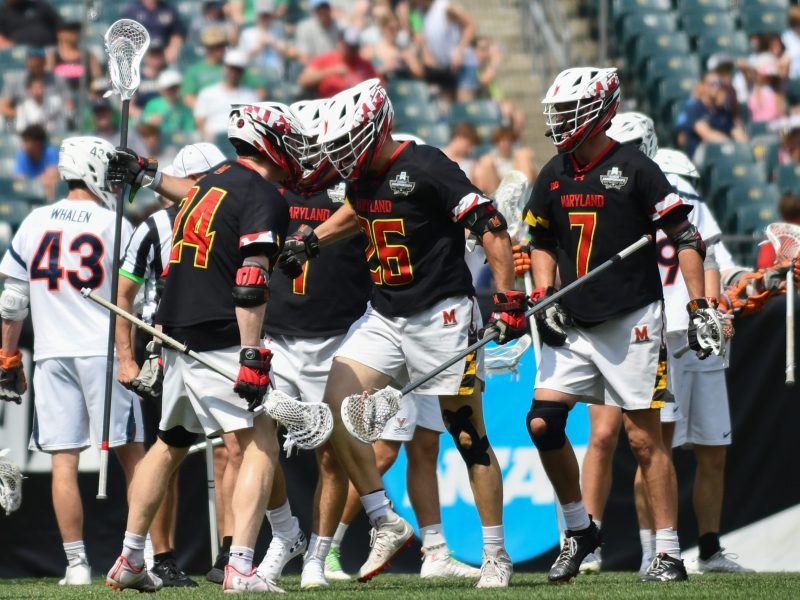
Karen DeSha, mother of slain student Justin DeSha-Overcash, stands outside Prince George’s County Police headquarters Jan. 11. DeSha pledged to recapture her son’s honor after county police said they had evidence suggesting he was dealing drugs.
The mother of slain senior Justin DeSha-Overcash showed up at Prince George’s County Police headquarters yesterday with a blanket and the intention of spending the night if things didn’t go her way.
She left three hours later with a sense of peace.
Karen DeSha sat down with county police spokesman Maj. Andy Ellis and Lt. William Rayle, a homicide commander, to review new evidence in her son’s case for the first time yesterday.
DeSha-Overcash was shot dead earlier this month in his 38th Avenue home in what police said was a drug-related robbery. After the incident, police said DeSha-Overcash’s lifestyle directly led to his death — police seized a considerable amount of marijuana, a digital scale and packaging materials from his residence.
As police were pursuing leads and suspects, DeSha was building her own case against county police by working with a local victims advocacy group to demand an apology and retraction of claims that her son was a drug dealer.
Yesterday, her case was settled.
Ellis said his department made a rare exception in offering privileged police evidence to DeSha and DeSha-Overcash’s father, Randy Overcash, to help them in the grieving process and put to rest any notion that police weren’t invested in finding their son’s killer.
“I told [DeSha-Overcash’s] father that I just felt that we had to give them more than we would normally give a victim’s family,” Ellis said. “After seeing the evidence, I think [DeSha] has some things to think about.”
Ellis would not disclose specifics about the new evidence because he didn’t want to jeopardize the ongoing homicide investigation. A local victims advocacy representative, Pauline Mandel, was also present for the meeting.
After the meeting, the only sentiment DeSha felt toward county police was gratitude.
“I feel they’re being very conscientious,” DeSha said.
DeSha said Mandel made her feelings clear: The lawyer had never seen such cooperation from a police force before.
“She said, ‘I can’t believe they showed you the thing they showed you,'” DeSha said. “‘That is something that is never done.'”
Mandel did not return calls for comment last night.
DeSha said police also showed her a local newscast she hadn’t seen, in which a police detective was quoted as saying it seemed like her son was a very good guy.
“Basically, that’s all I ever wanted them to say,” DeSha said. “My son was a good guy. He would have never hurt nor harmed anyone. I’m not going to tell you he did not smoke marijuana. I really don’t care that he smoked marijuana. It’s something people do in college and then your front lobe develops and you go, ‘Gee, what an idiot I was.'”
Despite the new evidence, DeSha was not ready to say her son had been dealing drugs. He simply didn’t have the money of someone with a large distribution, she said — that is, unless he had an off-shore banking account, she joked.
“No, I don’t believe any of that,” DeSha said. “Currently, I understand [police] are not doing a retraction because it may interfere with the case.”
And according to police, closing the case was all that ever mattered to them.
“We made it very clear our prime focus was on catching whoever killed their son,” Ellis said. “It doesn’t matter to us if he was involved in the sale or use of marijuana or not. Justin’s a victim, and he didn’t deserve to be killed.”
University Police Chief David Mitchell said University Police, who have not been involved in the investigation, are grieving the loss of a student who was clearly destined for success.
“Justin was clearly a fine young man who had such a promising, bright future,” Mitchell said. “He did nothing to deserve this. Nothing. What transpired should not have happened. … Anytime we lose one of our students it’s a tremendous loss.”
Mitchell agreed with his colleagues in the county sector, saying DeSha-Overcash’s possible involvement in the distribution is largely unimportant at this point, with the exception of its eye-opening potential for other students.
“Even if he was [selling drugs], he did not deserve to have what happened,” Mitchell said. “His mom said he was no angel. But one thing is clear: This young man did a lot of good in his life.”
present at umdbk dot com


